When to Call a Plumber
- By Neal Lund
- •
- 29 Jun, 2017
- •
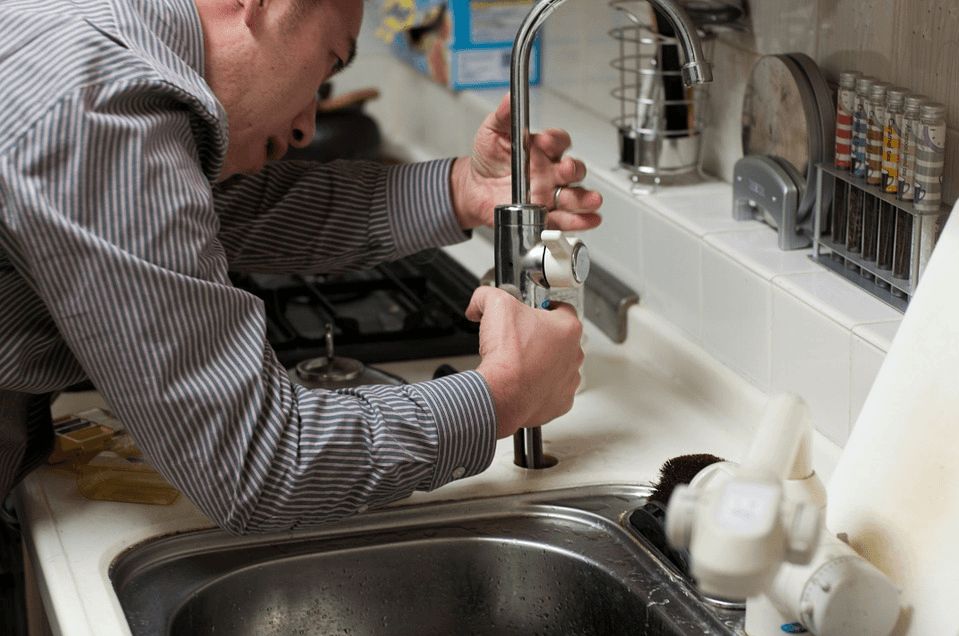
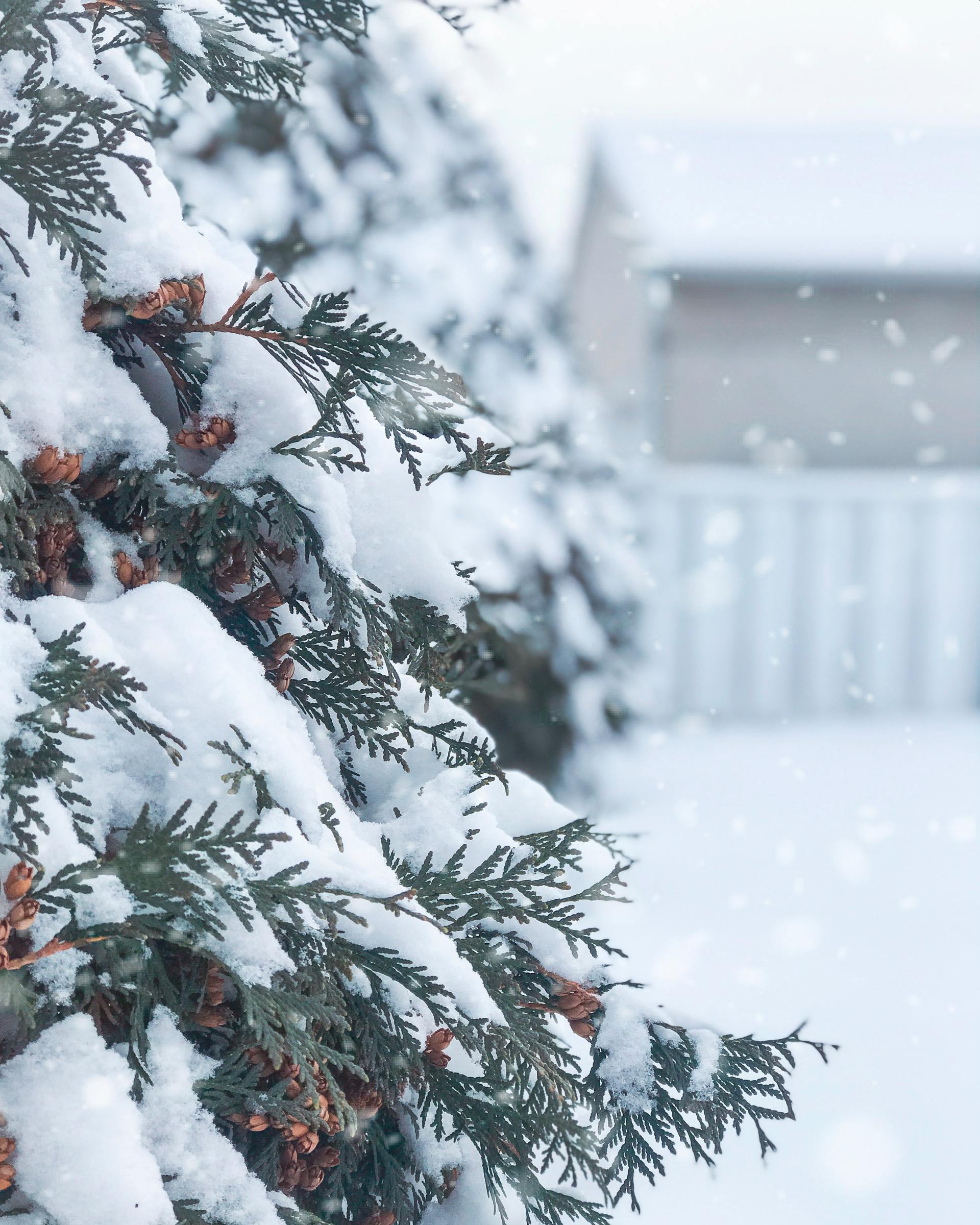
It’s official; winter’s on its way. Autumn’s already taking its bitter toll, and temperatures are about to plummet further. While you might not want to think about upcoming snow, turning your attention to HVAC maintenance now is the best chance you have at staying snug.
Having somewhere warm to hide can make an otherwise bleak winter feel cozy, but that’s never going to happen if you don’t put proper prep in place to keep your heating running smoothly. Fall behind here, and you’ll be the desperate soul trying to contact a repair company in the cold depths of winter.
Avoid that cool reality by taking care of these winter HVAC maintenance tips while you have the chance.
#1 - Schedule an annual inspection
An annual HVAC inspection is vital for winter health. After a summer of disuse, you can’t simply start your heating system and expect it to run like clockwork. Instead, every homeowner should schedule an inspection once autumn rolls around. While this process can cost you about $200, it also ensures your HVAC lasts the full fifteen years, thus saving you money in the long-run.
During an inspection, professionals will service and check your systems, as well as booting everything up to ensure smooth running. That way, you’ll be able to turn everything on without once worrying about a last-minute lack of heat.
#2 - Replace your filters
Like oil in a car, filters in an HVAC need replacing. While neglecting this won’t necessarily stop your heating from working, it can cause your HVAC to run harder, thus damaging those systems and ultimately increasing bills. Replacing filters is a simple process that can make a massive difference to the efficiency and therefore the heat your HVAC can produce.
#3 - Conduct an annual clean
We’ve all heard of spring cleaning, but winter HVAC clean should also be a priority. Dust and grime always build in unused heating vents. Like outdated filters, this can impact efficiency. Excessive dust could even damage your systems on startup. Make sure it doesn’t happen by doing a thorough clean before you boot your heating the first time. A simple case of dusting and wiping down should make all the difference.
#4 - Check your thermostat
Now is also the ideal time to check your thermostat. If you don’t have a programmable option, then it’s highly recommended you get one installed for increased winter efficiency. If you already have a programmable thermostat, you’re going to want to consider when you do and don’t set it. Setting your thermostat for critical times like early evening and first thing in the morning is vital, while you’ll want to make sure you turn it off when you’re at work etc. This will both help your HVAC to function and ensure that you can always enjoy decent heat without breaking the bank.
Whatever you do, don’t leave HVAC maintenance until the last minute. Take care of these tips now to ensure a warm winter that you can enjoy.
With warm weather upon us, many of us will be reaching for the AC controls. If you have air conditioning at home, when was the last time you had your system inspected? If it’s been more than a year, we strongly recommend booking an inspection and making it an annual tradition. There are so many advantages to be gained from ensuring that your AC units are checked on a regular basis.
Why is an annual AC inspection so important?
AC inspections are important for a number of reasons. The most important is to check that your system is functioning as it should be. When the heat of the summer months descends, and your AC system is working overtime to keep your home nice and cool, it can succumb to general wear and tear. Having an annual inspection enables engineers to spot signs of damage and to act before any existing problems get worse. Inspections flag up issues and potential red flags, and they can also improve the efficiency of your units. If your AC is working perfectly, you’ll reap the rewards in terms of enjoying a pleasant home environment and saving money on your energy bills.
Another reason to make sure you schedule an annual AC check is saving money on AC maintenance and repairs. If there are problems that are identified during a routine service, they can be addressed and remedied before they develop into issues that are costly to fix. There’s also a much lower risk of faults that could affect the function of your system and leave you sweltering and sweating at home.
Keeping up with general maintenance and routine inspections can also help to prolong the life expectancy of your AC units, which will save you money in the long-term.
What happens during an AC inspection?
When you have your air conditioning units checked, experienced engineers will go through a list of tasks and jobs to test the function of each unit and identify any potential problems. If the unit has a clean bill of health, you probably won’t need to do anything until your next inspection. If there are issues, which require attention, your engineer will explain exactly what they’ve found and provide you with information about what can be done to eliminate faults, improve efficiency and functionality and save you money in the future. If you have any questions, don’t be afraid to ask away. You’ll be given a quote and a timeframe for the work. In cases where there are major issues, or the unit is damaged beyond repair, you may be advised to consider investing in a new AC unit. If this is the best option, your engineer will be able to discuss your options with you and make recommendations based on your requirements and your budget.
If you’re due an AC inspection, or you have any questions about your air conditioning system or the benefits of having regular routine services and checks, we’re here to help. Call F.G Lees & Son today!
HVAC Maintenance: Preventative Care That You Can Take To The Bank
Imagine for a minute having to work in an office that didn’t have a working HVAC system in place. During the winter, temperatures would drop below freezing, and in the summer, you could be roasting in your cubicle with light from the sun beating down on your head. It doesn’t bear thinking.
That’s why it’s so important that organizations that use HVAC systems do preventive care. When your heating and cooling systems work, you don’t think about them. But when they stop doing their job, it’s hard to focus on anything else.
The Financial Case For Preventive HVAC Maintenance
The case for performing preventive maintenance on your HVAC system is similar to the case for maintenance on your vehicles or equipment. A small expenditure today can prevent a significant outlay in the future.
Let’s say, for instance, that your HVAC system cost $5,000 to install and that with a maintenance cost of $200 every five years, it will last fifteen years. Your heating and cooling costs are, therefore, $5,400 for the period.
Now suppose that you spend nothing on maintenance and your HVAC system lasts seven and a half years. Over the same fifteen year interval, you’ll end up paying $10,000, a massive $4,600 more than if you’d done some preventive maintenance.
Preventive Care Priorities
When it comes to preventive care for HVAC systems, where should your focus lie?
-
Change the oil. Like cars, HVAC systems have moving parts which require lubrication.
-
Change the filters. Filters can become clogged with dust, forcing the motor to work harder. Changing the filters improves air quality while ensuring that the machinery continues to work within accepted tolerances.
-
Change the belts. Some models of HVAC systems use belts that can wear out and cause damage if they fail.
-
Annual cleaning of boilers. Boilers can attract soot which reduces efficiency.
-
Fire testing. Fire testing ensures that the boiler remains safe.
-
Clean air coils. Clean air coils help to facilitate better heat transfer.
As you can see, performing these preventing care measures is inexpensive but can have a substantial knock-on effect on your overall maintenance bill. Organizations that perform preventive care can save a lot of money.
Create A Preventive Care Schedule
Keeping track of what needs to be done and when can be a challenge. But if you create a schedule, you can stay abreast of tasks that need doing once per month, once per quarter and once per year.
Create Digital Records
Most professionals recommend that you keep a schedule and maintenance history on a computer. Doing so eliminates the chance of losing paper copies of work that needs to be done.
Analyse Data For Patterns
Keeping a record of your HVAC maintenance history allows you to analyze it for patterns to see where problems are most likely to emerge.
Put Stickers On Your Equipment
Putting stickers on HVAC equipment keeps maintenance professionals up to date about when it was last serviced.
When the weather takes a turn for the worse, or as the seasons change, we begin to rely heavily on our HVAC systems to create a comfortable temperature in our homes and businesses.
But when these systems fail, figuring out what’s wrong and getting it repaired can be a race against time. Lack of air conditioning in the hot and humid summer months can quickly lead to mold and allergen build up, and lack of heat in winter can quickly lead to frozen pipes and thousands of dollars in damages. Not to mention, no one is going to be comfortable.
For these reasons and more, knowing what’s wrong can streamline the process for your repair technician. The good news is FG Lees is here to help.
If you’re curious about what kinds of issues can arise with HVAC systems, read below to find out what some of the most common problems are, and how a trained technician from FG Lees can do to help you solve them quickly and affordably:
- Old, dirty, or clogged filters. While this is a common problem, it is also frequently overlooked. If you hold your filter up to the light and it’s opaque, it’s time for a replacement. This can usually be done yourself, but if you’re not sure how the process works, a technician can show you.
- Thermostat issues. Sometimes, nothing is wrong with your actual HVAC unit -- the issue lies with your thermostat. If your thermostat is programmed wrong, adjusted to the wrong setting, or damaged, you might encounter problems with your heating/cooling.
- Drainage block. If the drainage pipe becomes clogged with lint or dust, water can leak out of the drain pan and damage the area around it. Regular cleaning and HVAC maintenance can avoid this, so make sure to keep an eye out for this issue before it causes other problems.
- Bad capacitors and contractors. Both of these parts conduct electricity, which can cause them to heat up. Combined with external heat, the temperature can get too high and cause these parts to fail. Luckily, this is a common repair and it’s worth a call to the technician to get the parts replaced.
- Refrigerant issues. A unit low on refrigerant will not work properly, and refilling it is an easy repair. However, if your HVAC unit is low on refrigerant every year, it’s a sign that something is deeply wrong. If you think you might have a refrigerant leak, contact a technician to examine your unit.
- Compressor failure. One of the more expensive replacements, especially if you own an older unit. Unless you’re intent on keeping your system, many contractors recommend buying an entirely new unit after this part fails. A trusted contractor will give you their honest opinion on which option is cheaper and more viable for you.
Getting Professional Help
It’s important that you seek help from a trained and certified technician when dealing with these issues. Otherwise, you might end up exacerbating the problem or getting hurt. HVAC repairs can vary in cost, but a reliable technician like those from FG Lees can make sure you get your system back up and running without breaking the bank.
Take Proactive Measures
Proactive measures can also be taken to avoid damage to your HVAC system. Replacing filters and scheduling regular HVAC maintenance can prevent issues in the future, and it’s never a bad thing to be familiar with your technician or company.
For years FG Lees has built a reputation on reliability and trustworthy HVAC services in your area. With combined decades of experience, their team has the know-how to help get your HVAC system back up and running in no time. Don’t hesitate, call us today to learn more.
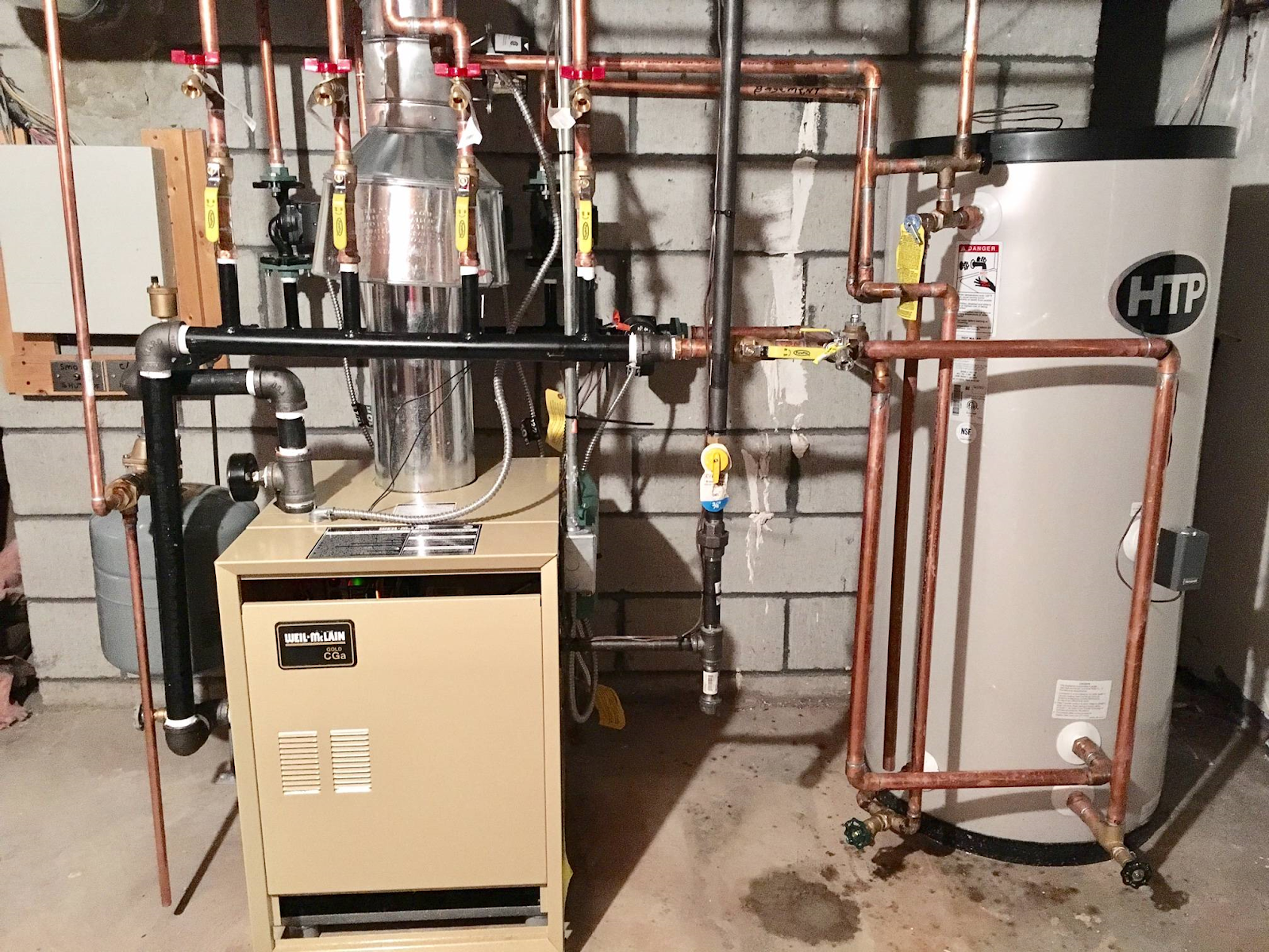
There are two typical methods for heating the home.
A furnace heats air by using fuel (usually gas) to heat up its coils, and then a blower motor moves the warmed air through the home's duct system, distributing it through the vents.
A boiler is a heating system that generates heat by using water. Boilers can run on electricity, gas, oil, or alternative fuels like wood pellets. They work one of two ways: The boiler heats the water, which in a hydroponic system, circulates in the combustion chamber of the boiler, then flows through a network of small hot water pipes in the home. In a steam system, the water is converted to steam and sent through the pipes to be distributed throughout the house via the radiators.
Boilers and Furnaces: efficiency comparisons
Both heating methods can be efficient, but in order to check your system, look at your heater's AFUE (Annual Fuel Utilization Efficiency) rating, which tells you how much fuel is converted to heat. If the rating is high, the unit is more efficient. For example, a furnace with an AFUE of 70 converts 70% of the fuel to heat and loses 30% during combustion.
There are pros and cons to both home heating methods. Boiler heat is often more steady and consistent in temperature while furnaces use warm air, blowing it around aimlessly which creates a drafty environment.
Other Differences
Another difference is in the temperature from one room to another. If the house is heated with a boiler system, room temperature may vary, as the system works with the radiators in each room. Furnaces by contrast, typically heat your whole home at one time, so each room is around the same temperature.
Budget Considerations
When debating which type of heating system to install, consider also your budget. Installing a boiler system is more expensive than using the air conditioning ductwork to heat the home by adding a furnace, but using a boiler has a few advantages over a furnace.
Hydronic heating systems don't blow dust and allergens throughout the house, drying out the air like furnaces tend to do. Boilers provide a more gentle and comfortable heat.
Maintenance of Boilers and Furnaces
Another difference between these systems is the type of maintenance required for each heating system. Furnace systems can be easily maintained by checking the water level from time to time, and replacing the filters which require frequent changing: Once a season at least, ideally every 1-2 months. Boilers, by contrast, typically only need to be serviced annually. Cast iron gas boilers, however, can run for years with minimal maintenance.
Closing Thoughts
If you are in the market to get a new heating system for your home, consider the pros and cons of both methods. Contact one of the qualified HVAC technicians at FG Lees & Sons to help you decide whether a boiler or furnace is ideal for your home. Servicing both furnace and boiler systems, FG Lee’s and Sons is a highly rated local provider of heating and cooling services.
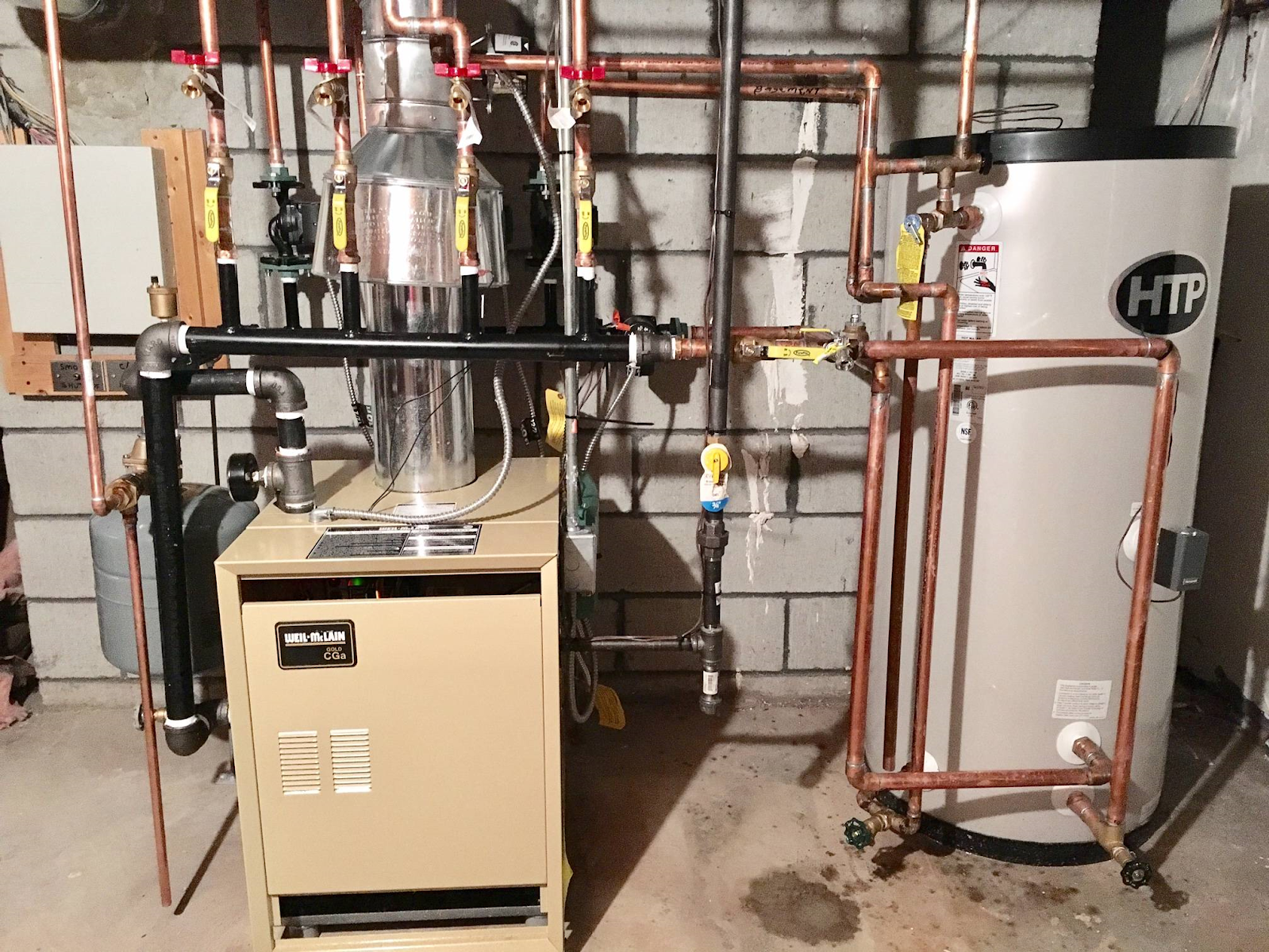
Schedule your summer boiler appointment today with us by calling 401-421-1358.
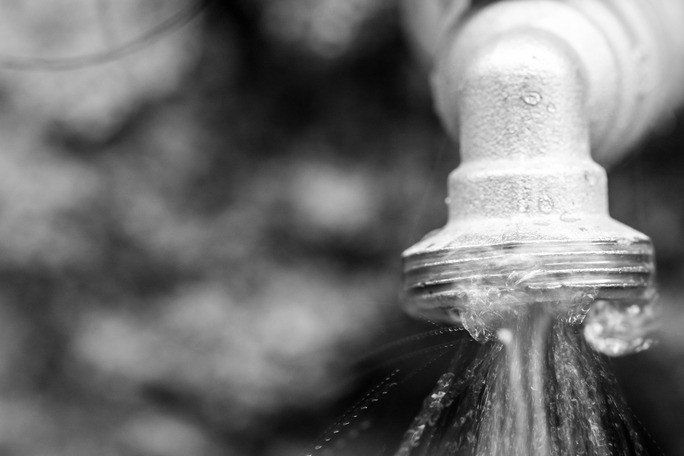
- Exposed pipes in unheated areas of your home
- Pipes located in your exterior walls
- Any plumbing that’s on the exterior of your home
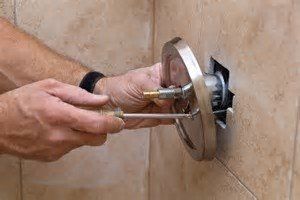

Gurgling fixtures
In the early stages of a sewer pipe clog, you might notice a gurgling sound when you flush the toilet. Additionally, drainage from your sink and tub might be slower than normal, or water might even back up into the tub or around your washing machine. These are all signs that something is not right beneath the surface of your plumbing.
Keeping the pipes clean
Even if you are on municipal sewer and water, you are most likely responsible for any issues to the pipes that lead from your home to the lines at the road. One way to ensure that there is not an issue with roots in these lateral connections is to have your sewer line cleaned by a specialist on a regular basis. You can also take measures to redirect growth away from your sewer and water lines by flushing copper sulfate down the toilet. While this is toxic to tree roots, it will not impact the entire tree as it only travels a short distance up the root to destroy the end portion.
Plumber vs. Sewer Specialist
It is important to know whether the plumber you are working with is able to handle sewer line issues. This is a specialized service which requires additional expertise. If you do start with a plumber, they might still refer you to a sewer line expert if it is determined that tree roots are the problem.
Diagnosis
Diagnosing a tree root problem requires the use of specialized camera equipment which is snaked through the pipes. This will help determine the severity of the issue and the next steps in taking care of the issue.
Are you concerned that roots might be invading your underground plumbing pipes? Call the experts at F.G. Lees & Son at 401-421-1358. Our family owned heating and plumbing business has over 180 years of combined experience servicing residents in Rhode Island. Contact our team today.